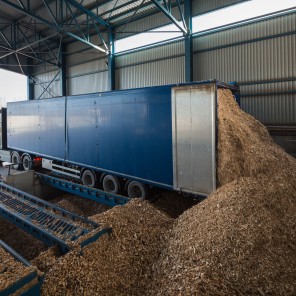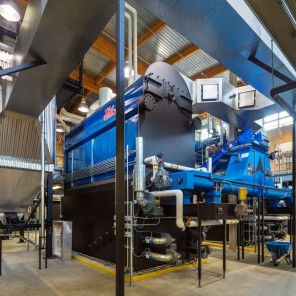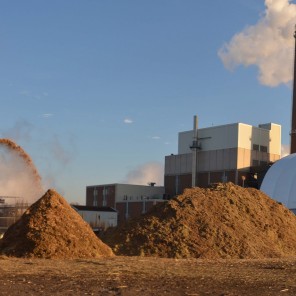
The use of solid biomass may resolve an important ecological problem of contamination of soil, watercourses and air, occurring at the places where the waste is dumped from sawmills, wood processing industry, pulp and paper industry, forestry and agricultural solid waste. Besides the solution of ecological problems, treatment of this kind of waste is economically very important as it enables energy potential from wood waste to be used in CHP plant for the simultaneous production of electricity and heat.
Biomass fuelled CHP plants for heat and power generation use various technologies such as gasification, pyrolysis, ORC (Organic Rankine Cycle), or a classical biomass combustion in a boiler plant with a steam turbine.
Gasification – biomass gasification is a high temperature process that converts solid biomass matter in a flammable gas (syngas) with a controlled amount of oxygen. After the gasification process, the gas phase leaves the gasifier whereas solid material (slug, ash, char), subject to composition, is used as feedstock. After cooling and cleaning, the produced gas is stored or directly burnt in CHP plant.
Pyrolysis is a process of decomposition of organic waste at elevated temperatures in the absence of oxygen. Thermal decomposition of solid biomass occurs in the process producing biogas, bio-oil and carbon-rich solid matter known as bio-char.
ORC (Organic Rankine Cycle) is a technology for distributed production of combined heat and power. The flue gases from biomass combustion transfer the heat to a working, organic fluid used to drive turbines and generator.


